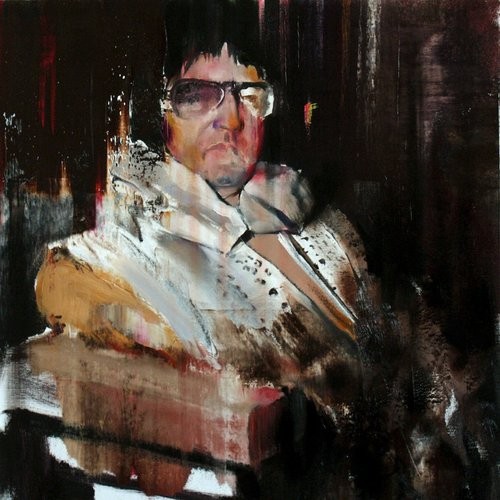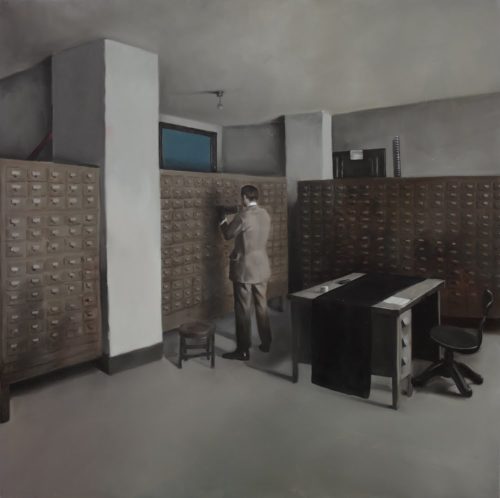“I believe that the action in film must become—will become—more and more interior.” Robert Bresson (Ideas and Men,Radio-télévision française, 1950) "On average, it took 58 days for the president to sign off on a target, one slide indicates. At that point, U.S. forces had 60 days to carry out the strike. The documents include two case studies that are partially based on information detailed on baseball cards. The system for creating baseball cards and targeting packages, according to the source, depends largely on intelligence intercepts and a multi-layered system of fallible, human interpretation. “It isn’t a surefire method,” he said. “You’re relying on the fact that you do have all … [Read more...]
Search Results for: let the games begin
Heads I Win, Tails You Lose
"I was impressed by the fact that even an advanced schizophrenic process had proved to be reversible or capable of being favorably influenced by a human contact. These were quite unusual notions at the time. I thought that perhaps methods could be devised by which I could help the patient maintain, increase, strengthen the achieved amelioration, even outside of the hospital environment. But of course I had no idea of how to do it. I had nevertheless learned that whatever benefit the patient could receive, had to come from his bonds with at least another human being." Sylvano Arieti (Interpretation of Schizophrenia) "Think neither of the good nor bad, but tell me what is your original … [Read more...]
I Want to be a Real Boy (Part one)
"If the teacher is only recording videotape, then there is no telepresence at all, and a great deal is surely lost. For example, if risk is important in the learning process, then when the teacher and the class are present together both assume a risk that is not there when they are not interacting – the student risks being called on to demonstrate his knowledge of the subject of the lecture, and the teacher risks being asked a question he cannot answer. If this is the case, then it may mean that distance teaching not only may produce poorer learning opportunities, but it may produce poorer teaching." Hubert Dreyfus (On the Internet) “We will show neurons firing in real-time on August … [Read more...]
Game (Theory) of Life
"For that which I do I allow not: for what I would, that do I not; but what I hate, that do I." Romans 7:15 "I wish it were possible... to invent a method of embalming drowned persons, in such a manner that they might be recalled to life at any period, however distant; for having a very ardent desire to see and observe the state of America a hundred years hence." Benjamin Franklin (Letter to M. Dubourg, 1792) "Kissing the picture of one’s beloved. That is obviously not based on the belief that it will have some specific effect on the object which the picture represents. It aims at satisfaction and achieves it. Or rather: it aims at nothing at all; we just behave this way and then we … [Read more...]
Social Contagion
"Every work of art is the child of its age and, in many cases, the mother of our emotions. " Wassily Kandinsky (Concerning Art and the Spiritual) "Ancient Greek words for blue signified the sea. In Tertullian and Isadore of Seville, blue referred to both the sea and the sky, much as the Greek word (bathun) and the Latin (altus) connoted high and deep by one word. The vertical dimension as hierarchy continues in our speech as blue blood for nobility, blue ribbons, and the many mythological images of ‘blue Gods’: Kneph in Egypt and Odin’s blue wrappings, Jupiter and Juno, Krishna and Vishnu, Christ in his earthly ministry like that blue Christ-man seen by Hildegard of Binge." James … [Read more...]
The Cunning of Covid
"I think the question of whether the theatre should adapt itself to the masses, or the masses to the theatre, has been settled once and for all. The masses only understood, or pretended to understand, the tragedies and comedies of ancient Greece because their stories were known to everybody and were explained over and over again in every play anyway and, as often as not, set out by a character in the prologue." Alfred Jarry (On the Futility of the Theatrical in Theatre, Mercure de France, September 1896.) “The productive logic of film is the productive logic of the work of art in the twentieth century.” Peter Osborne (in conversation with Paul Willemen in Working Together: Notes on … [Read more...]
Labyrinth
"Technically speaking, platforms are the providers of software, (sometimes) hardware, and services that help code social activities into a computational architecture; they process (meta) data through algorithms and formatted protocols before presenting their interpreted logic in the form of user-friendly interfaces with default settings that reflect the platform owner’s strategic choices.” Jose van Dijck (The Culture of Connectivity: A Critical History of Social Media. 2013) "A bullfight is a tragedy in three acts. These noble creatures, who are waiting for their death this afternoon are the heroes of that tragedy. The tragedy of the bullfight is based on the innocence of this creature. … [Read more...]
The Unthought Unknown
"When I speak of moralism, in this context, what I am concerned with, in general terms, is the misuse of morality for ends and purposes that are themselves vicious or corrupt. Moralisers present the facade of genuine moral concern but their real motivations rest with interests and satisfactions of a very different character. When these motivations are unmasked, they are shown to be tainted and considerably less attractive than we suppose. Among these motivations are cruelty, malice and sadism. Not all forms of moralism, however, are motivated in this way. On the contrary, it could be argued that the most familiar and common form of moralism is rooted not in cruelty but in vanity. The basic … [Read more...]








